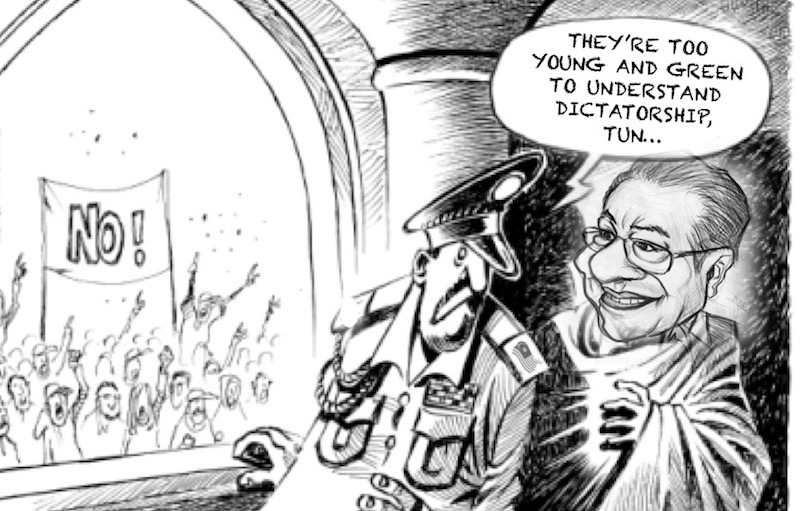
Malith Alier
A dictatorship or autocracy shrouded by instruments of democracy such as elections, parliament, judiciary and other institutions will eventually always come out in its true colour in the end. Any government led by an individual for over 20 years and counting is a true dictatorship by the standards of a democratic world. Stories of dictatorships are not hard to cite and are enumerate.
We have seen the one in Zaire, now the Democratic Republic of Congo. We have seen it in Libya under Muamar Gadafi. We saw it in Egypt under Hosni Mubarak. We witnessed it in Burkina Faso under Blaise Campaore. We found it in Zimbabwe under Robert Gabriel Mugabe.
The Algerians are to be congratulated for peacefully and bloodlessly removing the Abdulaziz Buteflika dictatorship before it could get out of hand. The countries above mostly solicited warfare by politely referring to it as “civil war.” The oppressed citizens are always seething with anger and vengeance to free themselves from the fangs of the agonizing dictatorship.
Since December 2018, Sudan has been grappling with how to free itself from the thirty year old dictatorship of Omar Bashir. Sudan is a tragic story in the region. Since independence in 1956, the country never rested from war. War has become part of the psyche of the people in this country.
Ideological war broke out a year before independence. In 1972, a peace accord seemed to reduce violence but did not completely stop the war. Some southern fighters remained in the bushes because the agreement fell short of its demand – total independence of Southern Sudan.
In 1983 the war resumed for another 21 years leading to the foretold independence in 2005. Even the peace agreement that followed did not quench the appetite for war in Sudan. War raged in Darfur, Nuba Mts and the Blue Nile regions.
Unfortunately, the Sudanese dictatorial regime developed a huge palate for war. Bashir and the rest of the Sudanese army generals seemed to know how to execute the war but had no knowledge on how to stop it. They recruited and condemned young men to fight for life.
This brings us to the question of dictatorship and military. Out of sixty four years of independence, Sudan has been under military rule for 55. This means the country has been under civilian rule for just 9 years. This is the tragedy the Sudanese people face today.
Ibrahim Abboud set this dangerous precedent when he took over government in 1958. Each time power changed hands, it was from military to military. When you have a leadership transition flowing through the annals of dictatorship, the military always becomes the preferred resort. The Sudanese themselves gave the military power to call the shots since 1958.
This is the reason why each time the masses want to dislodge the sitting government, it is the military they resort to no matter how dangerous history has shown this to be.
Source:
PAANLUEL WËL MEDIA LTD



